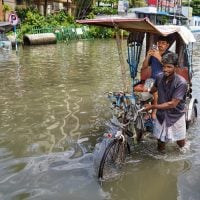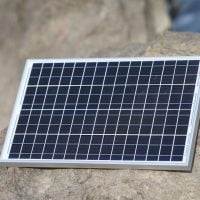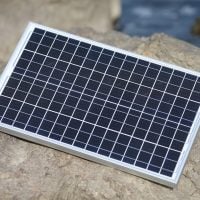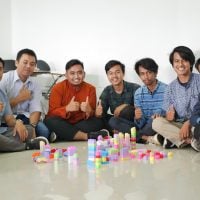Deadline: 18-Mar-24
Applications are now open for the Glenkens & District Community Fund to support their communities to be connected, resilient and carbon neutral places, where people will want to live, work and visit, to bring up their families, and to grow old.
The Glenkens & District Community Fund will distribute funds provided by Blackcraig Wind Farm (Scotland) Ltd from its Blackcraig wind farm, and Greencoat from its Windy Rig wind farm, both in Dumfries & Galloway.
The Fund Strategy will:
- Enable proposals to be prioritised for funding and for decisions to be made in a fair and consistent manner;
- Ensure the Fund achieves measurable impact against agreed Fund priorities;
- Provide clear messages to applicants and the wider community about what the Fund supports;
- Ensure the funding is accessible to those who are well placed to deliver impact in the Fund area.
Fund Priorities
- The Fund’s four priorities are to support activities across the area of benefit as follows:
- Priority 1: A Connected Community
- This will support activity which helps them to become more connected, for example through projects which promote effective communication, collaboration, sharing of information, skills and assets and which bring people together.
- Priority 2: An Asset Rich Community
- This will support activity which aims to make best use of their assets – people, the natural and built environment – and sustaining them for the future. For example this could include affordable housing or energy efficient community spaces; opportunities for young people which support their development; projects which enable people to share skills, knowledge or heritage; supporting biodiversity or improving access to the landscape.
- Priority 3: An Economically Flourishing Community
- This will support activity which maximises their ability to flourish economically; for example, ensuring equity of access to services, training and opportunities; and focusing on sustainable best use of local skills and resources such as tourism, food and farming.
- Priority 4: A Carbon Neutral Community
- This will support activity which supports communities to become carbon neutral. For example, through developing initiatives which seek to reduce carbon footprint such as the production of local energy plans, sustainable transport initiatives, energy efficiency measures, renewable energy initiatives and zero waste projects).
- Priority 1: A Connected Community
Funding Information
- This is a ‘small grants’ allocation to each Community Council for localised distribution. The arrangement currently provides:
- £2,000 each to the Community Councils of Balmaghie; Carsphairn; Corsock & Kirkpatrick Durham; Crossmichael & District; Dunscore; Glencairn; and Parton;
- £3,000 each to New Galloway and Dalry, as the signatories to the original Windy Rig agreement (£2,000 allocated from Blackcraig and £1,000 allocated to Windy Rig)
- £4,000 to Balmaclellan Community Council, as the Blackcraig Wind Farm host community
Approaches
- Partnership working: Some groups already collaborate and share ideas and resources. They want to encourage groups to explore if delivering their project or services in partnership with other organisations/groups could add value (financial, capability, or other). This could involve collaborating with other local groups or working with voluntary, private or public sector agencies that operate at local, regional or national levels.
- Geographic breadth of impact: They appreciate and respect that some activity is very place based and delivered to a specific group, perhaps tied to a particular place. However, where possible, they want to encourage people to consider if their project or activity can link with or reach to other parts of the Fund’s area of benefit. They do understand that some of the communities are more on the fringe of the area of benefit so appreciate this kind of linking may be less likely. But they do want groups to consider the feasibility of extending the geographic breadth of impact of the project or to explain where this is not a realistic or feasible option
- Building skills, knowledge & understanding: They want to encourage the applicant to consider opportunities to build the skills and knowledge of group members or other local people, associations or organisations connected with the project. This could be formal or informal or through some form of mentoring activity, peer support or buddying scheme, or any other learning or development opportunity that could be created through the funding applied for.
- Being imaginative: The Fund can support established activity but if people have ideas to try different things, they want to encourage that. Whether it’s trialing a new event, running a service differently or reaching new people in different ways, they don’t want their communities to be limited by what they have known until now. They want them to think ambitiously and creatively, especially where people have new ways of solving old problems and they are prepared to take some risks if proposals come forward that challenge them all to think or operate differently.
- In it for the long term: They want to encourage applicants to take a long-term view of their project. So when an application is for recurring activity (e.g. rental of a space, an annual festival, ongoing running costs for a club), they may encourage the applicant to give some thought to how that the activity might become more sustainable at some point in the future.
- Respecting and caring for the local environment – for themselves and future generations: They recognise the importance of protecting the environment and that their actions as citizens and participants in community life can contribute to the growing climate emergency they all now face. They encourage groups to consider where and how their own activity or project can contribute, even in a very small way, to combatting this emergency.
- Leverage/match funding: They want the Fund to help bring in additional income into their communities. So where groups can, they encourage them to try and use grants from the Glenkens & District Wind Farm Community Fund to lever in further funding to help them deliver projects.
- Procuring smartly: Where possible they encourage applicants to work with suppliers of goods and services local to their area. The definition of ‘local’ will vary depending on the goods/services in question. In some cases it could be taken to mean suppliers located within the Fund Area of Benefit (the ten communities) but in others a more regional reach may be more appropriate.
Eligibility Criteria
- Awards can support a wide range of costs and activities including equipment costs, staff or sessional worker costs, consultations and feasibility studies, maintenance or refurbishment of community facilities, and so on. Activities funded (including capital and running costs) must be consistent with recognised charitable purposes as set out in the Charities and Trustee Investments (2005) Act Scotland.
- To be eligible to apply to the Main Grants programme, applicants must:
- Management Committee
- There must be a minimum of three unrelated persons on the management committee or Board. This is to ensure that the group has a range of perspectives and experiences and is not dominated by the interests of a single family or similarly connected individuals.
- For the same reasons, the majority of the management committee or Board members must be unrelated.
- Governing Documents
- The organisation has charitable purposes, and these are described in the governing document.
- The governing document includes suitable restrictions on the disposal of assets under the organisation’s control (a charitable ‘asset lock’) and its management committee or board members’ remuneration. It should feature:
- A charitable dissolution clause (or ‘asset lock’) stating that on winding up the organisation’s net assets must be put towards a similar charitable purpose(s) to that of the organisation (which may include a named charitable organisation with a similar charitable purpose).
- Suitable restraints on the provision of benefit to individuals. Assets should not be distributable to, or otherwise used for, the benefit of members or individuals beyond that which can reasonably be considered charitable.
- The quorum for the management committee or Board meetings is referred to in the governing document and is at least three unrelated members present.
- Accounts & Financial Procedures
- The applicant must be able to supply the latest set of accounts. However, if the organisation is less than 18 months old, accounts are not required. Please note, abbreviated or micro-entity accounts are not accepted.
- The organisation name on the accounts must match the name on the governing document and bank account.
- Financial transactions are required to be either authorised (before payment) or checked (after payment) by another person independent of the person initiating the payment.
- None of the appointed account signatories can be related. This is to act as a safeguard against fraud or misuse of charitable funds under the organisation’s control.
- Safeguarding
- If your organisation’s core work (as stated in your governing document), or the project you are applying to them for, includes work with children and/or vulnerable adults, it must have an appropriate Safeguarding Policy and Procedures setting out how the policy is implemented in place before application. This must, as a minimum, cover the following:
- Recruitment and selection of employees and volunteers
- Employee and volunteer induction and training in safeguarding
- Safe arrangements for all work involving vulnerable adults/children and young people, including procedures for responding to and reporting abuse or suspected abuse
- Contact details, including at least one nominated Safeguarding representative.
- If your organisation’s core work (as stated in your governing document), or the project you are applying to them for, includes work with children and/or vulnerable adults, it must have an appropriate Safeguarding Policy and Procedures setting out how the policy is implemented in place before application. This must, as a minimum, cover the following:
- Management Committee
Ineligible
- The Fund cannot support the following types of activity:
- The advancement of religion or politics (including requests to support the core activities of religious or political groups).
- Activities understood to be the primary responsibility of statutory authorities (including teaching equipment in schools). Whilst schools cannot be funded, Parent Teacher Associations/Parent Councils can apply if they are appropriately constituted.
- Organisations or groups with unduly restrictive membership criteria and/or where the committee or board is not elected by, or otherwise accountable to, a wider group of people.
- Grants to individuals or unconstituted groups (other than through the discretionary Community Council schemes and where that grant provides community benefit) or grants to private for-profit businesses.
- Projects primarily benefiting residents outwith the area of benefit.
For more information, visit Foundation Scotland.









































